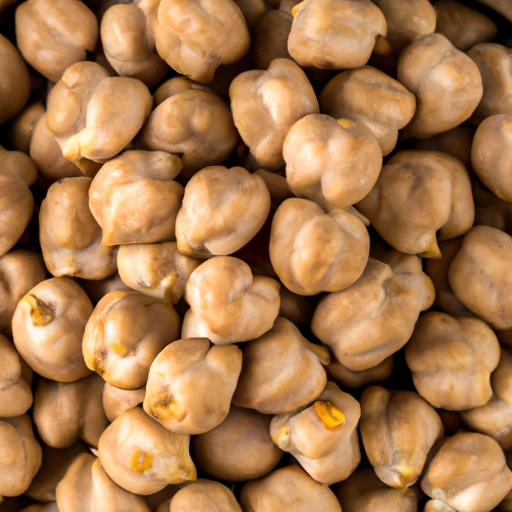Garbanzo Beans
Description

Garbanzo beans, also known as chickpeas, are a versatile legume popular in many global cuisines. With a nutty taste and a grainy texture, garbanzos are a staple ingredient in dishes from the Mediterranean to South Asia. They can be purchased dried or canned and are known for their high protein and fiber content, making them an excellent choice for vegetarian and vegan diets.
Common uses
Garbanzos are regularly featured in a variety of culinary applications, from salads and soups to stews and curries. They are the main ingredient in hummus, a creamy spread, and falafel, a popular Middle Eastern fried ball or patty. Chickpea flour, also known as besan or gram flour, is widely used in cooking and baking.
Nutritional value
Calories
A 1-cup serving (approximately 164 grams) of cooked garbanzo beans contains around 269 calories.
Protein
Each cup of cooked garbanzos boasts about 14.5 grams of protein, making them a significant source of plant-based protein.
Fat
Garbanzo beans are low in fat, with a 1-cup serving containing approximately 4 grams of total fat.
Carbohydrates
Garbanzos are rich in carbohydrates, providing about 45 grams per cup, predominantly in the form of dietary fiber and complex carbs.
Vitamins
They are a good source of B vitamins, particularly folate (B9), with one cup supplying more than 70% of the recommended daily value.
Minerals
Garbanzos are also abundant in essential minerals, including manganese, phosphorus, copper, iron, and magnesium.
Health benefits
Garbanzo beans contribute to digestive health due to their high fiber content. They also support cardiovascular health, assist in managing blood sugar levels, and are beneficial for weight management and satiety. Their protein content makes them important for muscle building and repair.
Potential risks
While garbanzos are generally safe for consumption, they contain antinutrients like phytic acid, which can reduce mineral absorption. Additionally, some individuals may experience bloating or gas due to their high fiber. People with legume allergies should avoid garbanzos.
Common recipes
Popular recipes include hummus, falafel, chana masala, and various salads and stews. In baking, chickpea flour is used to make pancakes, fritters, and gluten-free options.
Cooking methods
Garbanzos can be boiled, steamed, fried, roasted, or blended. They are also sprouted to enhance nutrient availability.
Pairing with other ingredients
They pair well with spices like cumin, coriander, and turmeric, as well as vegetables such as tomatoes and spinach. Lemon juice, garlic, and tahini complement their flavor in dips and spreads.
Summary
Garbanzo beans are a highly nutritious and adaptable food ingredient renowned for their health benefits and widespread use in many culinary traditions. Their rich history and varied applications make them a valuable addition to any diet.